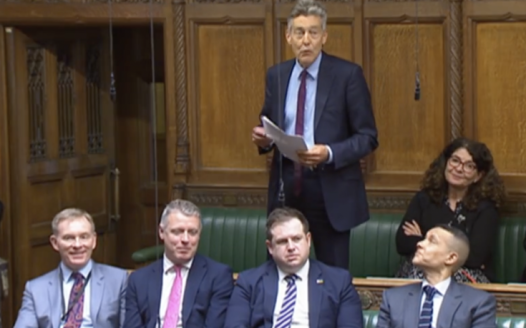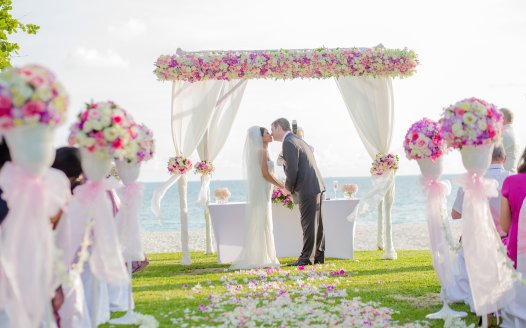Sharia reviews and the case for non-accommodation and non-regulation
Posted: Fri, 11th Nov 2016 by Sadikur Rahman
Our legal system cannot be permitted to fracture into parallel codes for different religious groups. Sadikur Rahman writes on how to avoid accommodation with sharia while also protecting the rights and interests of Muslim women.
The role of sharia law as practised by self-styled sharia councils and tribunals in the UK has rightly come under scrutiny in recent months. There is the Home Office review whose remit is to look at "best practice" amongst such tribunals, and the Select Committee review which is taking a broader look at how such councils operate in practice.
As someone who believes in a secular legal system, without accommodation to theories of legal pluralism, or dare I say sectarian approaches to the law, I am very worried that the conclusions being arrived at by the Government through these reviews is to recommend some form of accommodation of sharia law. This could be done through the decisions of sharia councils being given legal validity by UK judges or through the regulation of such bodies. My worry is given added impetus by the fact that the Home Office review panel contains Islamic theologians to give advice, and the Select Committee hearings, where most of the people questioned, apart from a brave few, were in favour of some form of accommodation with sharia. I am of the view that such sharia councils should be banned from making any legally binding decisions concerning marriage, divorce and custody of children. For the sake of brevity I will only be focusing on family law as sharia law disproportionately affects the status of women.
Before I further legitimise such bodies as having some form of legal function I will refer to them as councils rather than 'courts', which they are not. The only body at present which purports to operate under a UK statute is the Muslim Arbitration Tribunal (MAT) and it is far from being a court which can issue legally binding decisions.
It is important to dispel some of the more scaremongering beliefs amongst many people. At present it remains the case that the decisions of such sharia councils have no legal validity and are not legally binding.
Divorce and custody of children
The legal position is fairly clear. When it comes to civil divorce and custody of children, the decisions made by the sharia councils have no legal validity. They can only terminate a religious marriage. It is also the case that even if the marriage took place abroad and if the parties are now resident in the UK, to be lawfully divorced they must have a civil divorce; a sharia divorce will not suffice. Furthermore, the Arbitration Act 1996 makes it unlawful for religious tribunals to adjudicate on divorce and child custody. The terminology is important here – they are not allowed to adjudicate on civil divorces but clearly can do so in religious divorces.
However, a few recent cases have moved towards an accommodationist position whereby the courts are willing to entertain and approve orders made by sharia councils particularly if the parties consented to the adjudication by the sharia council. The courts have been willing to recognise a sharia divorce for the purposes of contract law in Uddin –v- Choudhury (2009). The case of AI –v MT (2013) (a Jewish Beth Din case)takes it one step further and states that the civil courts can enforce decisions made by religious tribunals set up under the Arbitration Act, again with the caveat that the parties consented. So although the Arbitration Act contains protections which suggests that decision will only be enforced if they do not contravene natural justice and fairness, it is difficult to see how in the normal practice of a busy family court such decisions will simply not be waved through. It will also be very difficult to define consent given that many women may not admit to being pressurised to going to the council whether through family or societal pressure to conform.
Considering the view the Courts seem to be taking and the tone of the reviews it is difficult not to think that some form of accommodation and regulation of such bodies will not be recommended. This would however, be a travesty and a betrayal of the many extremely vulnerable Muslim women who would be pressured to use these councils. It would be tantamount to scaling back the idea of one law for all, equality before the law in rights and dignity. If there are separate legal systems for different religious communities a secular legal system is meaningless as it would not be secular where it matters most, for the most vulnerable in our society – women and children.
In addition to being an attack on the basic principles of a secular legal system, this course of action is fundamentally flawed for a number of other reasons, which apply to any sort of accommodation of sharia decisions by the civil courts or regulation and oversight by the Government as to "best practice".
It should be remembered that sharia councils only exist because Muslim women need them to obtain a religious divorce. Muslim men do not need them because they can unilaterally divorce their wife. They do not need to ask their wife or anybody else to grant it to them. Not only do women need to request a divorce they also need to provide reasons for the divorce. Regardless of the reasonableness or otherwise of the exhaustive list of reasons, the point is that the man does not need to provide any reasons. Any regulation or accommodation of such a body would in my view be legitimising this inherently discriminatory outlook on divorce and gender relations.
It is acknowledged by all concerned that women who go to sharia councils may be pressurised to do so, and once there, there is evidence to suggest that women in abusive marriages are encouraged to stay in the marriage because sharia law places an emphasis on reconciliation. It is still the case (despite attempts at reform) that under sharia law a woman's evidence is worth only half that of a man, so that claims of domestic violence may be difficult to prove in such circumstances. With regards to custody of children there is an arbitrary sharia law principle that custody will be given to women until the age of 7 and thereafter to the father- without any consideration of the most important aspect of family proceedings in the civil courts which is that the interests of the child will be of paramount importance. Clearly such principles would be incompatible with English law as stated by a House of Lords in EM (Lebanon) (FC) (Appellant) –v- Secretary of State from the Home Department (2008). I feel it is always worth quoting the relevant paragraph in full as it describes sharia law in the context of custody:
"This system was described by counsel during the argument as arbitrary and discriminatory. So it is, if it is to be measured by the human rights standards that we are obliged to apply by the Convention. The mutual enjoyment by parent and child of each other's company is a fundamental element of family life. Under our law non-discrimination is a core principle for the protection of human rights. The fact is however that Shari'a law as it is applied in Lebanon was created by and for men in a male dominated society. The place of the mother in the life of a child under that system is quite different under that law from that which is guaranteed in the Contracting States by article 8 of the Convention read in conjunction with article 14. There is no place in it for equal rights between men and women. It is, as Lord Bingham points out, the product of a religious and cultural tradition that is respected and observed throughout much of the world. But by our standards the system is arbitrary because the law permits of no exceptions to its application, however strong the objections may be on the facts of any given case. It is discriminatory too because it denies women custody of their children after they have reached the age of custodial transfer simply because they are women. That is why the appellant removed her child from that system of law and sought protection against its effects in this country."
We seem to have come a long way from this decision. Any attempt to regulate or suggest good practice will come up against two further problems both of which go to the very heart of what a secular legal system is.
One is that at a fundamental level we do not know what sharia law is. Islamic jurisprudence and modern attempts at reform has thrown open interpretations of the rules described above, but nevertheless they still remain at the root of sharia law. It is not codified, or clear and open to as many interpretations as there are sharia councils. There may be differences between the four schools of Islamic law and again more differences between Sunni, Shia and Ahmadis and other sects.
Secondly, if the Government seeks to support or condone a liberal interpretation as "best practice" the State will again be intervening in a theological debate and choosing sides. It is not for the State to say what a Muslim divorce is or what sharia law is. Ultimately, even if some councils are considered "good", there is nothing to stop others such as Wahhabis or Salafis setting up their own councils.
The best arguments for regulation and against banning is that many Muslim women choose to use sharia councils as a matter of personal choice and conscience and that moreover if they are banned the councils will simply go underground. However, this fails to recognise a crucial aspect of religious difference. Even if the state accept some sharia councils over others because they might be perceived as more compatible with English law, there is nothing to stop other sects or those with more conservative interpretations of sharia law opening up their own councils and continuing to administer sharia law on their own terms. Will the Government then look to inspect and regulate these as well?
Of course from a secular point of view allowing religious arbitration for Muslim and Jewish faith groups will inevitably lead to calls for the recognition of other religious tribunals. Even if they do not exist at present any legitimisation of sharia councils will lead to the set-up of tribunals for Hindu, Sikh, and perhaps even other Christian denominations. Differing laws will mean inequality of legal rights and obligations with some rights being better than others and plain discrimination based simply on the basis of religious identity. This will lead to a complete undermining of a secular legal system.
With faith schools on the rise and potential acceptance of legal pluralisms, I fear that society will become segregated between religious groups and increasingly sectarian. It may start off with religious tribunals under broad general headings either sharia council or Beth Din – but there will be nothing to stop a proliferation of tribunals of different sects even within religions each with their own tribunals based on their own ideological differences.
For all the above reasons, these is very strong case for making all religious arbitration unlawful. The State must require any marriage, divorce and custody dispute to be dealt with in the in the first instance in the civil courts so that decisions are made according to English law. This may protect against the more unsavoury practices when someone goes before a sharia council. If a Muslim person still feels that as a matter of conscience they still need their Muslim divorce they can do so after the civil Court has decided. Perhaps as with marriage, attempts should be made to persuade Muslims to accept a civil divorce as a religious divorce automatically, although that will be completely a matter for personal religious belief.
At a time when India is thinking of moving away from Muslim personal law to having a unified civil code, we should not be moving in the opposite direction.
The standing of Muslim marriage in the UK
The position with regards marriage is slightly different as under the Marriage Act 1949 there is and historically has been recognition in UK law of the validity of Catholic or Jewish marriage. This has been extended to Muslims not by accepting that a Muslim marriage can be recognised as a civil marriage but by allowing Mosques (or any other venue) to register as venues where civil marriages can take place and Imams to qualify as Registrars. Meaning that if marriage takes place in a Mosque registered for the purposes of marriage and the Imam is a qualified Registrar then as long as the appropriate words are used, perhaps alongside the Muslim nikah- this would qualify as a civil marriage.
Perhaps not realising this, many Muslims and campaigners suggest a way around the phenomenon of many Muslims not having civil marriages, is to allow all Muslim marriages to be automatically recognised as a civil marriage. I believe would be a dangerous route to go down for the following reasons.
The question of "what is a Muslim marriage" is a vexed one. Muslim marriage encompasses a range of unions which would not be acceptable on the basis that they may be discriminatory or open to abuse. For example polygamous marriages, temporary marriages amongst Shia Muslims and nowadays young Muslims of all sects- (Muta), marriage between adults and children as it is accepted amongst many interpretations of sharia that a once a child reaches puberty they are an adult. If UK law were to automatically recognise "Muslim marriages" as civil marriage what will be the legal standing of the marriages described above? If we take the position that they cannot be civil marriages then what is the point of the change as the only marriage that would be acceptable would the one between two consenting adults, which the Marriage Act already provides for in the way described above. Alternatively, if we started debating what is and is not a Muslim marriage and go down the route of perhaps siding with Islamic reformers in not accepting the above types of marriage as Muslims marriages at all, then the state would be entering into a religious theological debate which is no position for a secular State to be in. It is not for the state to start defining what is and is not a Muslim 'marriage'.
The real question that needs to be asked is why Muslims are not taking more advantage of the ability to have a civil ceremony in a mosque or a venue registered for the purposes of marriage and having both the civil ceremony and nikah carried out at the same time.
Finally, an alternative way of looking at the whole matter is perhaps for Muslims reformers to engage in a debate and promote the idea that the current civil marriage is accepted as a Muslim nikah i.e. there is accommodation by Islam of a particular type of civil marriage rather than accommodation of sharia in a secular legal system. I have often been told by Muslim reformers that UK law does represent the best of what modern Islam could be.







